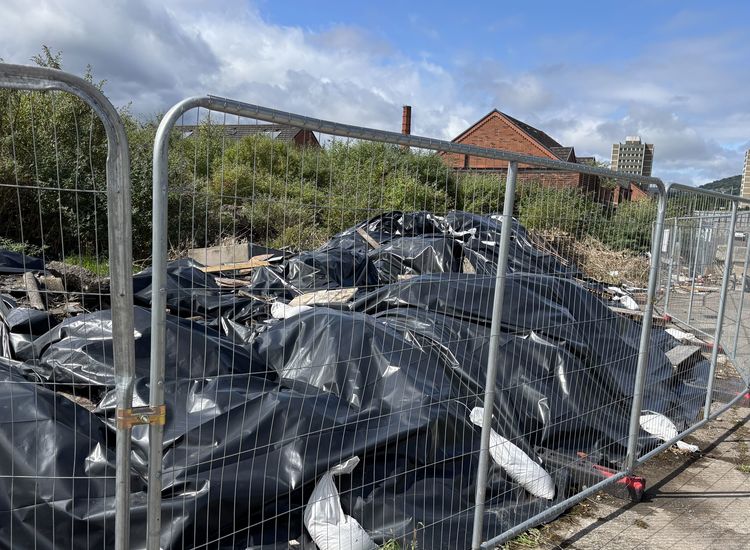[caption id="attachment_68726" align="alignright" width="600" caption="Celtic players celebrate a goal on a summer trip to Aviva in Dublin in July. "]
For a long time I couldn’t understand what people saw in Scottish football. The standard is mediocre and the title race is traditionally restricted to two teams from the same city. Lately though, I’ve come to revise that opinion. The more headlines I read, the more I realize the Scottish Premier League may be the most morbidly fascinating competition on the planet. Who needs Barcelona and Real Madrid and a surfeit of world-class performers when you have the increasingly rancid Old Firm soap opera? Like the proverbial car crash, Celtic and Rangers make it hard for us to look away.
And now there’s the added interest of the arrival of Pat Fenlon onto the scene. As somebody who feels Irish-born managers haven’t got a fair ride in the British game (witness Newcastle going berserk at the mere thought of Brian Kerr becoming Chris Hughton’s assistant last year), I was eager to see how his Hibernian side did against Rangers the other week. Ironically enough, the first match report I came across online was written by Tom English, a Limerick native who works for The Scotsman newspaper. Aside from providing a typically succinct account of Hibs’ 2-0 defeat, English provided the following nugget.
“Their [The Rangers’ fans] way of registering their protest [about a recent ban imposed on one of their players] was to tell the SFA [Scottish Football Association] where to go – as is their right – while also chipping in with some singing about Fenian bastards which is utterly moronic,” wrote English. “The Scottish Premier League will spring into action now. Not so much iron fist as feather duster. The bigots will get a right good tickling over this from the hardliners at Hampden.”
This is the terrible beauty of Scotland. In the same week that Celtic were fined €15,000 by UEFA for illicit chanting and admonished about the presence of the IRA in terrace songs, their counterparts from the other half of the city were disgracing themselves and dragging the game into the dirt again. And giving Fenlon a dose of what he’s in for in his new home. Of course, for mentioning this fact like any good reporter, English was later accused of dishonesty by the Rangers’ fans. As he pointed on in his own defense though, the Rangers’ fans somehow never accuse him of lying when he calls out their Celtic counterparts for being out of order.
What a wonderful sport. What a wonderful country. Never mind the games, the real fun is off the pitch. Beyond the fans’ mutual antipathy and paranoia, there’s the bizarre Scottish media. Unlike Mr. English, too many of the hacks up there appear a tad compromised when it comes to reporting on the big two (which should really be called the only two). While both sets of Glaswegian supporters can claim the press is biased against their particular club on any given day, even the most prejudiced had to laugh at the way the story of Rangers’ financial woes was covered. Watergate, it was not.
Despite the fact a whole pot of legal and commercial problems had been boiling over for months and months, and being reported online in various outlets, it was only last September that the Scottish media (and not all of them were willing either) finally sank its teeth into the Ibrox story. And what a tale of tax irregularities, unpaid bills, and multiple lawsuits it is. Suffice to say the carry-on was so complicated and dodgy, and on such a large-scale that it makes the demise of Cork City on Tom Coughlan’s watch look like something out of a Ladybird children’s book. That some think Rangers may end up having to eventually go the way of City and come back under new ownership and a new name sums up how bad the situation is.
Against that background, it was hardly surprising then that Celtic asked Rangers to pay in advance for its allocation of tickets to the Dec. 28 Old Firm clash at Parkhead. Instead of handing over the tickets to the rival club and then receiving the money once Rangers sold them on to their fans, Celtic insisted on cash upfront. Given that the sum involved is over £350,000, and Rangers were recently in court for refusing to pay a firm of solicitors less than a tenth of that earlier this year, it would seem Celtic are just being prudent.
Where else would you get this type of stuff except Scotland? Especially when you consider Rangers’ response. Having found enough used notes stuffed down the back of a couch somewhere in Ibrox to pay, they let slip to a reporter that they will be asking Celtic to stump upfront for the game at their place next March. It would be funny if it wasn’t so childish and pathetic.
Much as Celtic followers have to be enjoying the spectacle of their bitterest enemies in such financial disarray, they have to be worried too. Without Rangers, what would Celtic become? Should the unthinkable happen and the Scottish Premier League relegate one of their marquee names for a slew of offences that probably would have cost a lesser club their place in the top flight by now, Celtic will have a serious identity crisis. They need Rangers or else the whole thing up there is just pointless.
In the meantime, the green and white half of the city has problems of its own. Representatives of Celtic fan clubs want to talk to the club to ascertain just what songs come under the banner of “illicit chanting.” Again, this is football culture at its very finest. The supporters need to clarify what terrace tunes are least offensive. We don’t set ourselves up as experts on the matter but it’s probably fair to assume they want to get rid of anything mentioning the ‘Ra. If that’s not specific enough, perhaps Celtic should hire Rangers to advise them on what is legitimate or not. After all, Ibrox could do with making a few extra bob.









